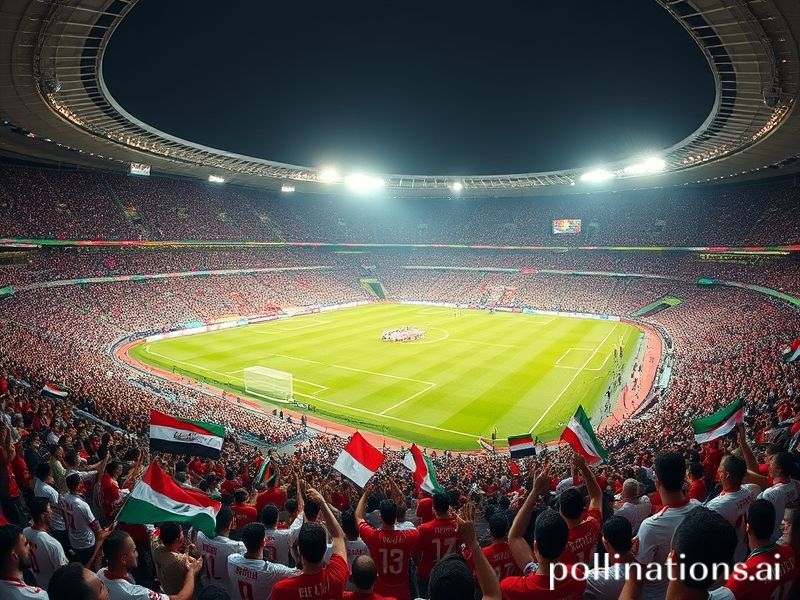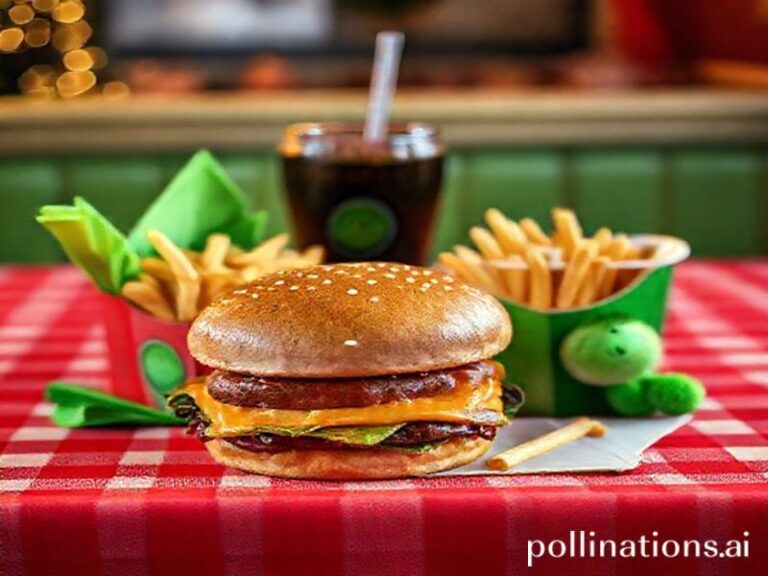UAE vs Oman: The Gulf’s Genteel Grudge Match with Global Energy Stakes
**The Persian Gulf’s Quiet Rivalry: UAE and Oman’s Polite Cold War**
While the world obsesses over flashier conflicts—nuclear saber-rattling, Twitter coups, and whatever Elon Musk did this week—two neighbors on the southeastern tip of the Arabian Peninsula are waging a war so subtle it could be mistaken for a mutual-admiration society. The United Arab Emirates and the Sultanate of Oman, both poster children for stability in a region that treats calm like an exotic import, are locked in a geopolitical chess match where every pawn move is accompanied by a five-star buffet and a press release about “shared prosperity.”
To the casual observer, the UAE and Oman look like the Odd Couple with oil money: one a federation of city-states that built a ski slope in a shopping mall, the other a tranquil sultanate whose idea of excess is painting a house two colors. Yet beneath the surface of polite diplomacy lies a rivalry older than most TikTok influencers. It’s a contest over ports, pipelines, and prestige—fought not with missiles but with master plans, sovereign wealth funds, and the occasional passive-aggressive ribbon-cutting ceremony.
The prize? Control of the chokepoint where 30 percent of the world’s liquefied natural gas squeezes through the Strait of Hormuz like a global artery one cholesterol plaque away from cardiac arrest. Whoever shapes the future of this waterway shapes the bedtime routines of European radiators, Asian factories, and that guy in Wisconsin who insists on a V-8 pickup to fetch groceries. In short, the stakes are high enough to make even Swiss bankers sweat through their neutrality.
Oman’s strategy is classic underdog: leverage geography and a reputation for being “the Switzerland of the Middle East” (minus the Nazi gold, plus frankincense). Muscat courts every major power—Washington, Beijing, Brussels, and, when the mood strikes, Tehran—offering ports and plausible deniability in equal measure. Its crown jewel is the port of Duqm, a sleepy fishing village transformed into a mega-hub that aspires to be Dubai-lite, hold the bling. Western navies like it because they can dock without appearing on an Instagram story; Chinese firms like it because the sand is soft enough to build a railroad to the interior; and the Iranians like it because it’s just far enough from Saudi glare to conduct discreet conversations over cardamom coffee.
The UAE, meanwhile, counters with the subtlety of a gold-plated Lamborghini. Dubai’s Jebel Ali is already the region’s busiest port, Abu Dhabi is bankrolling green-energy projects faster than you can say “carbon-neutral camel race,” and the country’s foreign policy resembles a venture-capital pitch deck: invest everywhere, hedge every bet, and always secure preferred shares. When Oman announced plans for Duqm, the UAE quietly expanded facilities at Fujairah on the Gulf of Oman—because nothing says “friendly competition” like parallel multibillion-dollar construction timelines and competing duty-free outlets.
Global implications? Picture two maître d’s politely shoving each other to seat the same customer. Energy importers from Tokyo to Rotterdam are thrilled; nothing lowers prices like a duopoly pretending to be a buffet. Defense contractors toast nightly to the perpetual need for “security guarantees,” and shipping insurers sleep better knowing that if one port sneezes, the other is ready with a monogrammed handkerchief—both sanitized by migrant labor on 45-degree-Celsius afternoons.
The cynical takeaway is that this rivalry is the best kind: profitable, bloodless, and photogenic. While Yemen burns and Syria digs out of rubble, UAE and Oman compete over who can pour more concrete before the next climate summit. Their cold war keeps oil flowing, LNG tankers humming, and think-tank analysts employed—an ouroboros of strategy papers and brunch buffets.
So when you next fill up your tank or charge your electric car (powered by gas-fired grids, naturally), spare a thought for the polite hostility fermenting along Arabia’s eastern edge. It’s geopolitics as spa treatment: exfoliating risk, moisturizing profits, and wrapping the planet in a fluffy towel of mutually assured prosperity—right up until the sand shifts, the strait narrows, and someone forgets to say “after you.”







